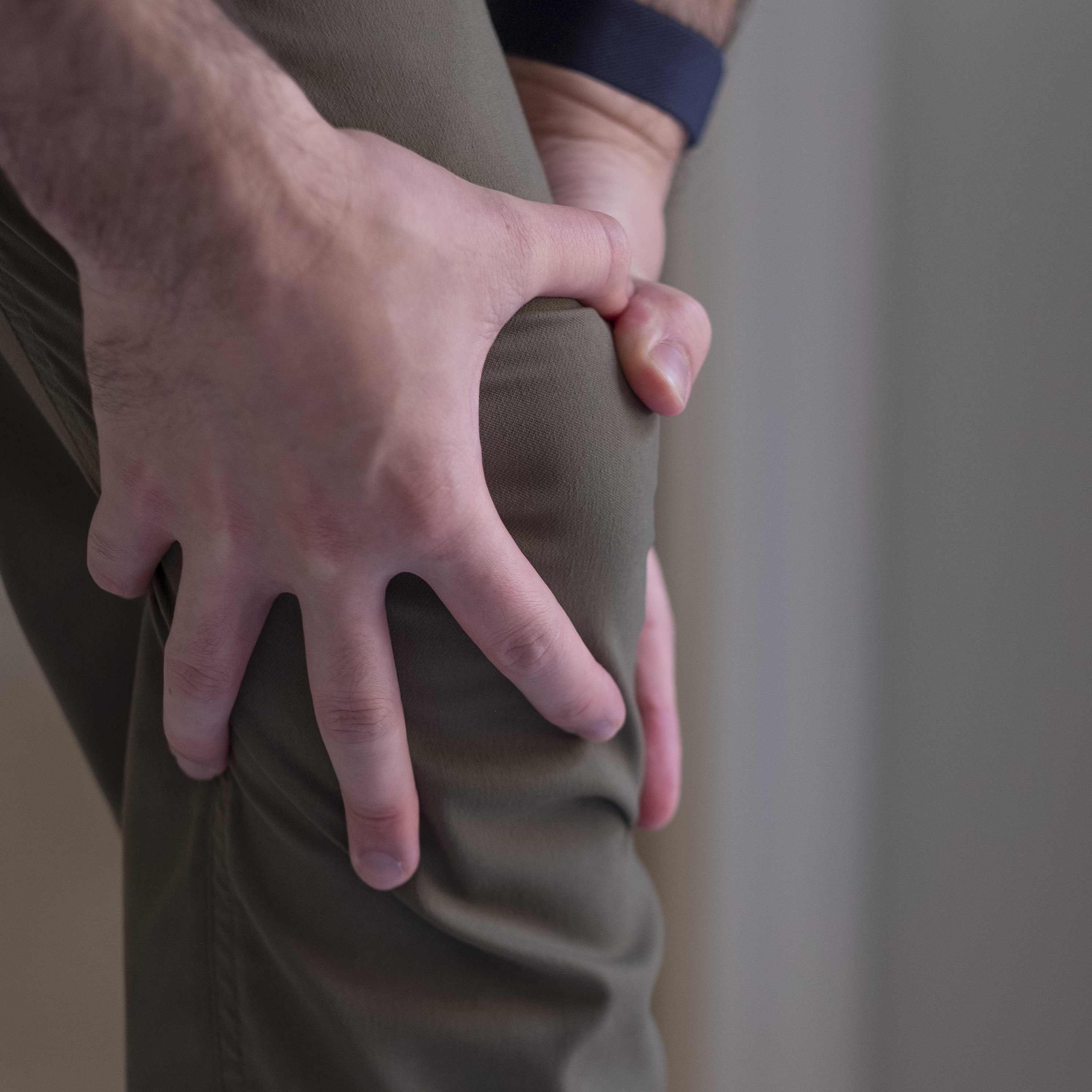Can Protein Help With Joint Pain?

September 08, 2021
If you experience chronic joint pain from osteoarthritis (arthritis), different lifestyle habits – like maintaining a healthy weight and exercising regularly – may help to improve your discomfort.
“Patients often ask why they continue to have some joint pain after completing a new exercise program,” says Stephen G. Silver, M.D., a board-certified orthopedic surgeon specializing in arthroscopic treatment of the shoulder, knee, and elbow. “I tell them exercise is only half the battle. As somebody who specializes in treating joint pain, I’ve certainly come to recognize how patients can help themselves out by changing their diet.
Your diet may also help to minimize joint pain, in part because a healthy diet may contribute to weight loss, but also because certain foods help fight inflammation, which can exacerbate joint pain.
There’s no such thing as an “arthritis diet,” according to the Arthritis Foundation, but you may notice less pain if you eat a variety of fruits, vegetables and healthy protein sources while limiting your intake of sugar, processed foods and saturated fats.
Bulking up on protein isn’t recommended for people with arthritis-related joint pain, but including certain protein-rich foods in your diet may help to relieve some of your discomfort. Other protein-rich foods may not be as ideal.
To ease chronic joint pain, consider these protein-rich foods:
- Fish rich in omega-3 fatty acids. Omega 3’s have been research-proven to reduce inflammation, so including omega-3-rich fish in your diet may lead to less inflammation-related joint pain over time. Try eating salmon, tuna, sardines, trout or mackerel at least twice a week.
- Nuts. Almonds, walnuts and other nuts are high in protein, fiber and healthy fats, and they’ve also been shown to fight inflammation in the body. Choose unsalted, unsweetened varieties, rather than smoked, honey-roasted or chocolate-covered options.
- Beans. They’re rich in antioxidants, which may help to lower inflammation. Beans are also high in fiber, which is helpful if you’re trying to lose weight; fiber helps you feel full for longer periods, encouraging you to eat less often.
- Dairy products (for some people). There are advantages to consuming low-fat dairy products, which are rich in protein, calcium, vitamin D and other nutrients. Some people experience inflammation and joint pain when they eat dairy, while others don’t. If you have joint pain, try an elimination diet with your doctor’s assistance to see if dairy products are linked to your discomfort. If they aren’t, you can continue to enjoy them.
Consider limiting these protein-rich foods if you’re trying to relieve joint pain:
- Red meat. Foods that are high in saturated fat, such as beef, may cause inflammation in the body, which can lead to joint pain. Consider other options when you’re choosing what to eat with your joint pain in mind – especially if you cook your steak with butter, another food that’s high in saturated fat.
- Dairy products (for some people). Because dairy products may cause inflammation and joint pain in some people, it’s best to limit or avoid them if you’ve confirmed that they’re triggering your discomfort. Don’t avoid low-fat dairy products without asking your doctor for help; try an elimination diet first.
- Gluten. The term “gluten” may make you think of bread, but it’s actually a protein found in wheat, rye and barley. People with celiac disease – an autoimmune condition that causes intestinal damage when people consume gluten – must avoid gluten-containing foods. Joint pain may be a symptom of celiac disease, which can be underdiagnosed; some people with joint pain may not realize that they have the condition. (Additionally, people with rheumatoid arthritis are at increased risk of celiac disease.) There isn’t a direct link between gluten consumption and osteoarthritis, but many people feel better on a gluten-free diet. Ask your doctor if you should try a gluten elimination diet.
Next Steps & Resources:
- Meet our source: Stephen G. Silver, M.D.
- To make an appointment with Dr. Silver, or a doctor near you, call 800-822-8905 or visit our website.
The material provided through HealthU is intended to be used as general information only and should not replace the advice of your physician. Always consult your physician for individual care.




